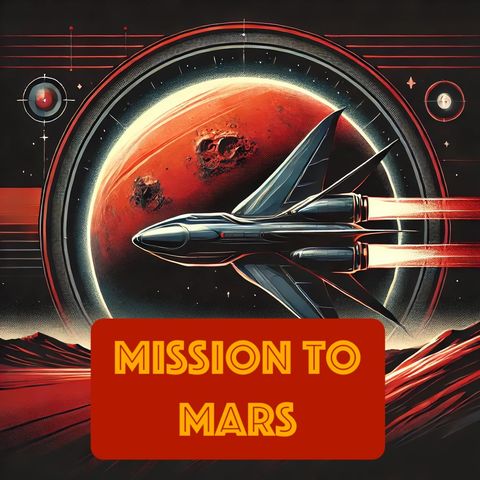Gut Health Disruptions: A Crucial Challenge for Interplanetary Space Travel

Sign up for free
Listen to this episode and many more. Enjoy the best podcasts on Spreaker!
Download and listen anywhere
Download your favorite episodes and enjoy them, wherever you are! Sign up or log in now to access offline listening.
Description
Space travel has long fascinated humanity, not just for its exploratory value but also for its profound effects on human health. One crucial area of health that gets significantly impacted...
show moreA pioneering study has shed light on the fact that microgravity environments and the high-radiation conditions of space can profoundly alter the human gastrointestinal (GI) system. These changes in the gut microbiome—the complex community of microorganisms living in the digestive tracts—can have significant implications on the health and functionality of astronauts on long-term space missions.
The microgravity in space can slow down the movement of food through the digestive tract, a condition known as gastrointestinal transit delay. This slowing can lead to various digestive issues, from simple constipation to more severe forms of GI distress. This not only affects an astronaut's capability to perform duties effectively but also impacts nutrient absorption which is critical for maintaining overall health in the nutrient-controlled diets of space travelers.
Furthermore, exposure to the high levels of radiation in space is another critical concern for gut health. The radiation can damage DNA in the GI tract cells, potentially leading to long-term health problems such as increased cancer risk. Moreover, radiation exposure has been shown to affect the diversity and function of the gut microbiome, which plays a vital role in immune system regulation, digestion, and protection against pathogens.
Research also indicates that changes in the gut microbiome may contribute to the decreased immune function observed in astronauts, making them more susceptible to infections and inflammation. This vulnerability can be particularly hazardous on missions to Mars, where access to medical supplies and interventions is limited.
Addressing these challenges, scientists are investigating various strategies to protect and maintain astronaut health during deep-space missions. These include developing dietary supplements that can help bolster gut health, enhancing radiation shielding techniques aboard spacecraft, and possibly engineering probiotic bacteria that can better withstand the conditions of space.
Studies like these are crucial as they provide insights not only for the success of future manned missions to Mars but also for understanding the implications of long-term space habitation on human health. Innovative solutions to these problems will be key to ensuring that astronauts can remain healthy as humanity reaches further into space.
Information
| Author | QP-4 |
| Organization | William Corbin |
| Website | - |
| Tags |
Copyright 2024 - Spreaker Inc. an iHeartMedia Company
